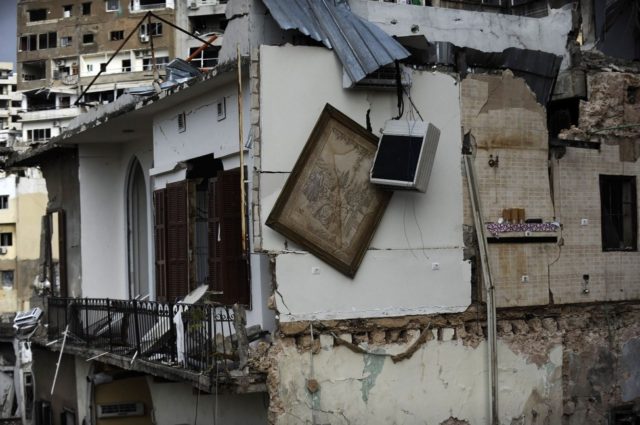Aug. 31 (UPI) — The Parliament of Lebanon on Monday named as new prime minister Mustapha Adib, 48, former ambassador to Germany, as the country moved forward after a massive explosion a month ago in its capital city, Beirut.
After the Aug. 4 blast that killed more than 180 people and injured at least 6,000, former Prime Minister Hassan Diab and other members of the government resigned in a group as demonstrators filled the street.
Almost 3,000 metric tons of ammonium nitrate owned by a Mozambique firm erupted at the city’s port after being stored unsafely for more than six years, causing about $15 billion in damage to buildings and displacing thousands of residents.
Adib visited the ruined buildings in the historic neighborhood of Gemmayzeh, among those hardest hit by the blast, and spoke to residents Monday.
“There are no words to express this frightening scene,” Adib said. He said he would begin a reformist government immediately, vowing to “put the country on track to end the dangerous financial, economic and social drainage.”
Adib added: “The opportunity in front of our country is narrow, and the mission that I accepted is based on all political groups realizing that.”
Adib’s support came from a majority of parliament members. The country’s sectarian-based power-sharing system requires that every prime minster must be a Sunni Muslim.
Adib’s government is expected to resume talks with the International Monetary Fund for a $10 billion agreement, contingent on the government’s reforms. The country’s electricity and financial sectors have also been clouded by problems caused by arguments between the parliament’s sectarian interest groups.
French President Emmanuel Macron arrived in Beirut on Monday and was expected to press parliament members to work together to right the government and provide public services and aid to residents displaced by the crisis.
Lebanon was facing multiple overlapping crises even before the blast, including those of financial, fiscal, political and health, Rana Sukarieh of York University, Canada, wrote Monday. “These ongoing challenges have pushed an estimated 55% of Lebanese citizens into poverty.”
Sukarieh, volunteering in Beirut, said economic aid has been “fragmented and unequal,” not reaching residents who are refugees or marginalized groups.
“All my family was injured. My apartment is destroyed and the whole building is about to collapse,” an injured Syrian refugee named Widad told Sukarieh.
“My husband is still hospitalized. There is no one to help us because we are poor Syrians. … A group of well-intentioned people visited us the first few days, offering us sandwiches. But what would a sandwich do? We have nothing. We do not have drinking water nor a toothbrush. I have not showered in days. There is no soap, no shampoo, not even clean water. We are still waiting for these associations that collect money on our behalf. I am unable to go anywhere with my injuries. I cannot leave my daughters alone at home.”

COMMENTS
Please let us know if you're having issues with commenting.